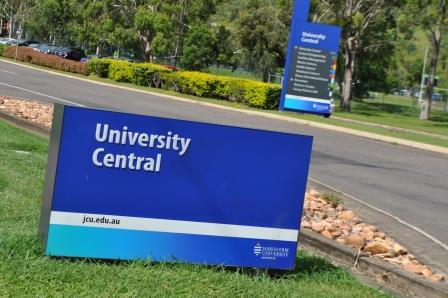JCU Medical School strengthening Indigenous health care
Creating partnerships to improve the quality of primary health care provided to Aboriginal and Torres Strait Islanders across Northern Australia is the aim of a nationally funded project led by researchers at James Cook University.

The National Health and Medical Research Council (NHMRC), which administers grants for health and medical research on behalf of the Australian Government, awarded the project nearly $600,000 in the latest grant round.
Associate Professor Sarah Larkins, from JCU’s School of Medicine and Dentistry, will lead Quality improvement in Aboriginal primary health care: lessons from the best to better the rest from early 2014.
Dr Larkins said improving the quality and consistency of primary health care (PHC) provided to Aboriginal people and Torres Strait Islanders was an essential part of the Federal Government’s Close the Gap program.
“A range of Indigenous PHC centres—both Aboriginal and Islander Community Controlled Health Services and government-provided health services—provide primary health care services for Indigenous people,” she said. “However, the quality of care provided by such services, and the intermediate health outcomes achieved, vary significantly, and the reasons for this are not known.”
Associate Professor Larkins said working in partnership with Aboriginal and Torres Strait Islander peak bodies and government, researchers from JCU, Menzies School of Health Research and the Combined Universities Centre for Remote Health, the project aimed to find out what worked in primary health care services to help improve their performance.
“Working with existing data through the ABCD National Research Partnership, we will identify ‘high-improving’ PHC services over several cycles using Continuous Quality Improvement—or CQI—tools.
“Then we will use multiple case studies with these services that improve dramatically in response to CQI to investigate the factors that support a positive response to CQI processes and how they interact at each site.
“In partnership with participating services, we will then use action research to translate this knowledge through the existing ABCD National Research Partnership Network to services struggling to improve their performance using CQI tools.”
About James Cook University Medical School
James Cook University’s medical school specializes in rural and remote medicine. The JCU program has a unique place among Australian medical schools. The course is undertaken entirely in northern Australia and has an emphasis on tropical medicine, the health of rural and remote communities, and of Aboriginal peoples and Torres Strait Islanders. The JCU medical program is informed by a concern for social justice, innovation and excellence in medical education, research and service.
Medical students at JCU gain early experience in the tropical health care context and benefit from extensive clinical experience and a full course of medical education and training. The program attracts students, staff and clinicians with an ambition to make a difference, whatever their background, specialty or career direction.
James Cook University’s medical school offers a six-year, full-time undergraduate degree in medicine and surgery, the Bachelor of Medicine Bachelor of Surgery (MBBS). This medical program aims to produce graduates of the highest academic standards, who can progress to medical practice and to further studies in medical specialties. As mentioned above, the course places special emphasis on rural and Indigenous health and tropical medicine. If you are interested in global health, and the health people in rural and remote places, JCU medicine may be a great fit for you!
*

































Ask A Question
Ask us about your program of interest, or if you have a question about our services.
CONTACT US TODAY